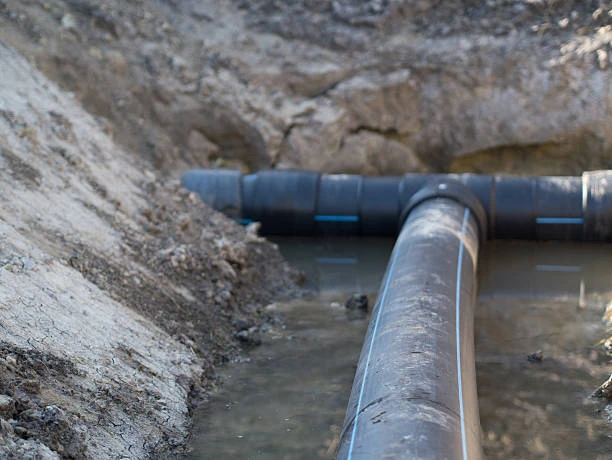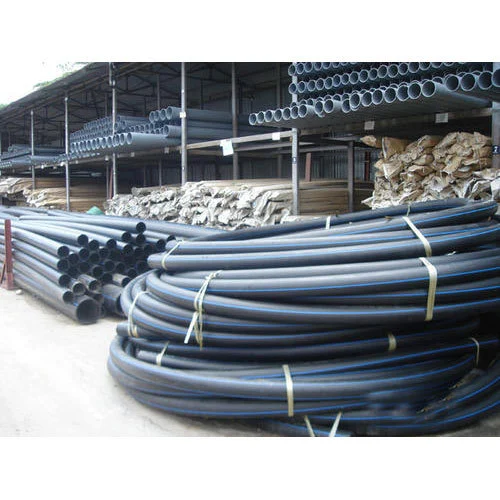Subtitle: The Potential of HDPE Plastic Pipes Manufacturing in Kenya and Its Economic Impact
In a significant development for Kenya’s manufacturing and infrastructure sectors, a firm has proposed the construction of a state-of-the-art HDPE (High-Density Polyethylene) plastic pipes factory in the country. This move comes as part of a broader push to address the growing demand for durable, cost-effective, and sustainable piping solutions in East Africa. HDPE plastic pipes are gaining popularity due to their versatility, strength, and resistance to environmental stress, making them essential for industries ranging from construction and agriculture to water management and telecommunications. This article explores the importance of HDPE plastic pipes, the proposed factory’s potential impact on Kenya’s economy, and how it can help address the country’s infrastructure needs.
Introduction: The Role of HDPE Plastic Pipes in Modern Infrastructure
HDPE plastic pipes are becoming a cornerstone of modern infrastructure development. As African nations like Kenya focus on upgrading their infrastructure to support urbanization and improve living standards, the demand for HDPE plastic pipes has been rising steadily.
Why HDPE Plastic Pipes Are a Game-Changer for Kenya
1. Durability and Longevity
One of the primary reasons for the increasing adoption of HDPE plastic pipes is their durability. These pipes have a lifespan of 50-100 years, which makes them a reliable and long-term solution for infrastructure projects. This is particularly important in Kenya, where infrastructure durability is critical due to the country’s diverse and often extreme climate conditions. HDPE pipes can withstand both high-pressure environments and fluctuating temperatures without losing their integrity.
Their resistance to corrosion, scaling, and chemical exposure makes them a more dependable alternative to traditional materials like metal or concrete pipes, which are prone to rusting and degradation. This reliability reduces maintenance costs over the years and ensures a steady supply of vital services such as clean water and sewage management.
2. Corrosion and Chemical Resistance
HDPE plastic pipes are impervious to corrosion, unlike their metal counterparts, which can degrade over time due to exposure to water, chemicals, and environmental elements. In regions like Kenya, where infrastructure often faces exposure to both the elements and harsh chemicals in water systems, the ability of HDPE pipes to resist corrosion significantly extends the longevity of water, sewer, and industrial piping systems.
This characteristic is particularly valuable in industries such as agriculture, where pipes are subjected to fertilizers, pesticides, and other chemicals that can damage traditional piping materials. HDPE pipes also prevent the contamination of drinking water, an issue that has been a challenge in parts of Kenya with aging infrastructure.
3. Flexibility and Ease of Installation
HDPE plastic pipes are flexible, making them easier to transport, install, and maintain compared to more rigid materials. The flexibility allows these pipes to expand and contract with temperature fluctuations without cracking or breaking. This characteristic is particularly beneficial in regions prone to seismic activity or shifting soil conditions, which is common in many parts of Kenya.
Additionally, HDPE pipes are lighter and easier to handle, reducing installation time and labor costs. This ease of installation is a significant advantage in the fast-paced construction and infrastructure projects that are essential to Kenya’s growth.
4. Sustainability and Environmental Benefits
With an increasing emphasis on sustainability, HDPE pipes offer several environmental advantages. First, they are made from recyclable materials, which reduces the environmental footprint of their production and disposal. This aligns well with Kenya’s sustainability goals and its efforts to reduce plastic waste.
Furthermore, HDPE pipes help conserve water by reducing leaks, which is a critical concern in a water-scarce country like Kenya. Their leak-proof nature ensures that water is transported efficiently, minimizing waste and improving water conservation efforts. As Kenya struggles with droughts and water shortages, improving the efficiency of its water systems with HDPE pipes will be crucial in mitigating these challenges.

The Proposed HDPE Plastic Pipes Factory in Kenya
1. Addressing Local Demand for Infrastructure
The proposal to build an HDPE plastic pipes factory in Kenya is a response to the increasing demand for modern piping solutions in the region. With a population of over 54 million people and rapid urbanization, Kenya requires substantial investments in infrastructure to keep up with demand for water, sewage systems, and energy networks. The factory aims to supply local markets with high-quality HDPE pipes to meet these needs.
Currently, many of Kenya’s infrastructure projects rely on imported pipes, which can lead to higher costs and delays. This move also helps mitigate currency fluctuations and the costs associated with international shipping.
2. Job Creation and Economic Growth
Building and operating an HDPE plastic pipes factory will create significant employment opportunities in Kenya.
Additionally, by fostering a local manufacturing industry, Kenya will be able to keep more of the economic value generated from infrastructure projects within the country, driving long-term growth. The establishment of the factory also positions Kenya as a potential exporter of HDPE pipes to neighboring East African nations, further strengthening its position as a regional economic hub.
3. Supporting Kenya’s Vision 2030
The Kenyan government’s Vision 2030 is a blueprint for the country’s economic growth, focusing on transforming Kenya into a middle-income economy through infrastructure development, industrialization, and innovation. The proposed HDPE plastic pipes factory aligns with this vision by contributing to the development of local industries, improving infrastructure, and creating jobs.
By meeting the country’s growing demand for HDPE plastic pipes, the factory will play an essential role in achieving Vision 2030’s objectives.
Key Benefits for Kenya
1. Boosting the Construction Sector
The availability of locally produced HDPE plastic pipe will benefit construction firms by providing them with a reliable, cost-effective, and sustainable material for water, sewage, and drainage systems. This will support both public and private sector construction projects, including new housing, commercial buildings, and transportation networks.
2. Enhancing Water and Sanitation Projects
Kenya’s water and sanitation systems require extensive upgrades to meet the needs of the growing population. HDPE pipes will be crucial in these upgrades, providing an efficient and durable solution for water supply.
3. Promoting Environmental Sustainability
By manufacturing HDPE plastic pipe locally, the country will reduce the environmental impact associated with importing pipe from abroad.
Conclusion: A Bright Future for HDPE Plastic Pipes in Kenya
The proposal to establish an HDPE plastic pipes factory in Kenya presents an exciting opportunity to meet the country’s growing infrastructure needs.
By investing in local manufacturing, Kenya can reduce its dependency on imports, improve supply chain efficiency, and contribute to the development of a more resilient economy.
Frequently Asked Questions (FAQs)
- What are HDPE plastic pipes used for in Kenya?
HDPE plastic pipes are used for various infrastructure applications in Kenya, including water supply, sewage systems, irrigation. - Why are HDPE plastic pipes better than traditional materials?
HDPE pipes are more durable, corrosion-resistant, flexible, and cost-effective than traditional materials like metal and concrete. They have a long lifespan and require less maintenance. - How will the HDPE pipe factory impact Kenya’s economy?
The factory will create jobs, support local manufacturing, reduce dependence on imports, and contribute to the growth of key sectors. - What environmental benefits do HDPE plastic pipes offer?
HDPE pipes are recyclable, reduce water loss through leaks, and have a lower carbon footprint compared to other materials. They also help in conserving water, which is crucial in water-scarce regions like Kenya. - How does the proposed HDPE factory align with Kenya’s Vision 2030?
The factory supports Vision 2030 by contributing to the country’s industrialization, improving infrastructure, .

















